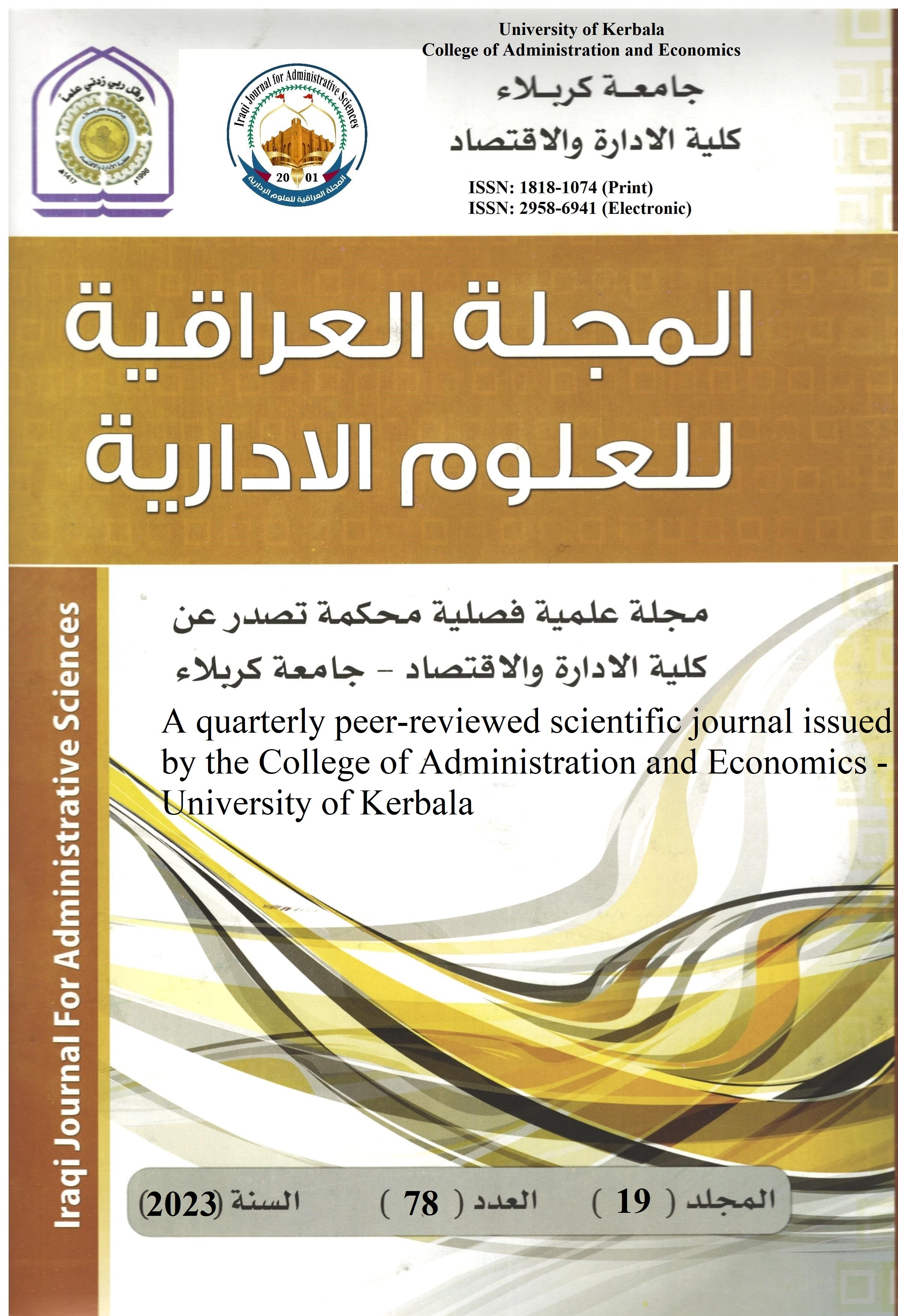The role of psychological capital in promoting organizational citizenship behavior- An analytical study on a sample of members of the college councils at the Universities of Kerbala and Muthanna
Keywords:
psychological capital, organizational citizenship behavior, Karbala University, Al-Muthanna University.Abstract
The current study aimed to find out the extent to which the dimensions of the independent variable psychological capital with its dimensions represented by (self-efficacy, hope, optimism, flexibility) can affect the dependent variable organizational citizenship behavior with dimensions represented by (altruism, living conscience, sportsmanship, courtesy). A set of objectives, including identifying the level and type of relationship between psychological capital and organizational citizenship behavior, and testing the extent to which management adopts them. The study relied on the descriptive analytical approach in collecting, analyzing and interpreting its data, and the questionnaire was adopted as a main tool in collecting data from a sample of (279) members of the college councils and heads of human resources departments at the Universities of Karbala and Muthanna, and a set of statistical methods were used that helped to Analyzing the data of the study and testing its hypotheses represented by statistical tools (arithmetic mean, standard deviation, response level, relative importance, simple Pearson correlation coefficient), the study reached a set of conclusions, the most important of which is the high awareness of the variables of the current study by the universities of the study sample. The study also reached a set of recommendations from the most prominent of which is the need to advance the dimensions of psychological capital in the universities under study and pay attention to the psychological aspect of employees.
Downloads
Published
How to Cite
Issue
Section
License
Copyright (c) 2024 Iraqi Journal for Administrative Sciences

This work is licensed under a Creative Commons Attribution-NonCommercial-NoDerivatives 4.0 International License.
Authors retain the copyright of their papers without restrictions.




